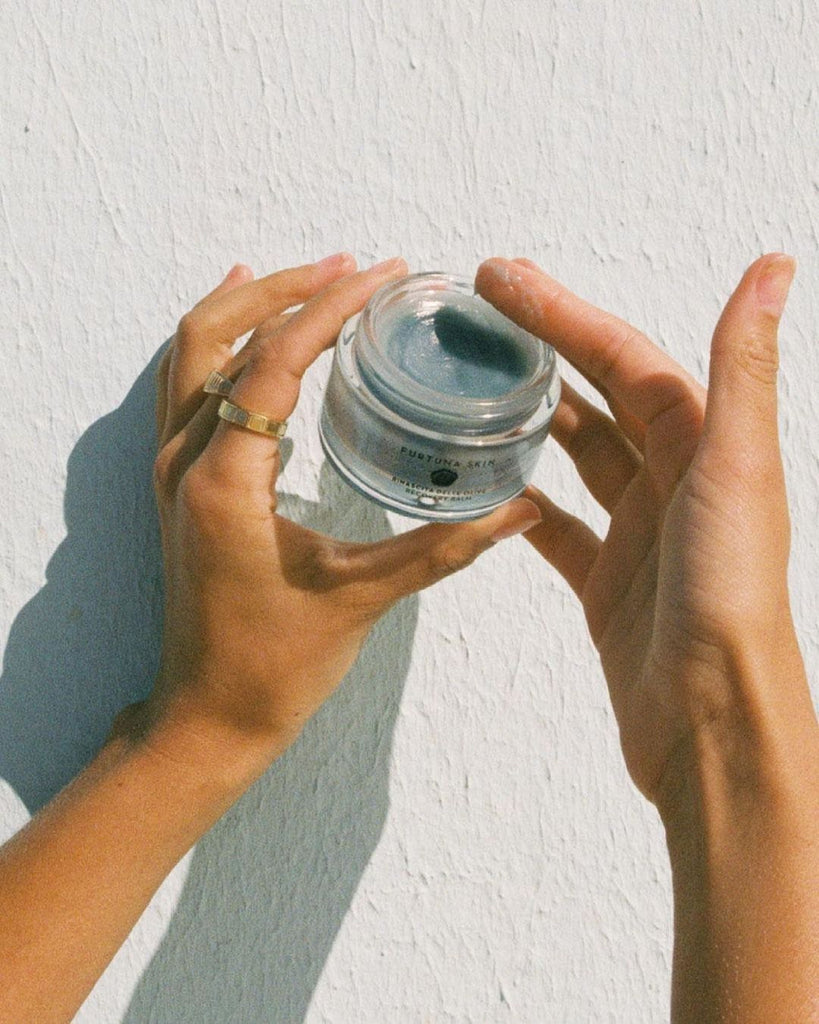Despite what you may have heard, you can't fix split ends, and shaving your hair won't make it grow back thicker. In Myth Busters, we debunk common beauty misconceptions and set the record straight.
We've heard about the benefits of vitamin C serums for as long as we can remember. Studies show that applying a topical vitamin C to your skin can help reduce hyperpigmentation, brighten the area, protect it from harmful environmental factors, and stimulate collagen. That's why the skincare industry is now booming with formulas that contain the ingredient. From serums, cleansers, moisturizers, and more, there's no shortage of vitamin C products on the market.
However, there are still so many misconceptions surrounding vitamin C and how to correctly use it. For example, some rumors say it can cause sun sensitivity, while others suggest that you shouldn't combine it with active ingredients. Considering all of the questions, we decided to put the rumors to rest by tapping three skincare experts. Ahead, check out five common vitamin C myths—and the truth.
Myth: All vitamin C is the same.
According to a cosmetic chemist and founder of the skincare brand, Acaderma, Dr. Shuting Hu, there are several forms of vitamin C that are used in skincare products to result in different benefits to the skin. For example, ascorbic acid is the purest, most effective, and most researched form of vitamin C. Tiffany Masterson, founder of Drunk Elephant, says it's referred to as the "gold standard" due to its status and range of benefits.
"Ascorbic acid acts as a potent antioxidant, meaning it helps to defend skin from damaging environmental free radical damage, which can improve the appearance of signs of aging, unevenness, and brightness," she tells HelloGiggles. "It's also a powerful anti-inflammatory ingredient too, meaning it can help to reduce redness and other signs of irritation in the skin."
That said, Dr. Hu says ascorbic acid oxidizes quickly, which can impact its effectiveness and cause irritation on sensitive skin types. "On the other hand, an ascorbic acid polypeptide is a stable form of vitamin C that provides all of the same benefits without the risk of oxidation or irritation," says Dr. Hu. To prevent oxidation, look for vitamin C products with opaque or dark glass packaging that block the sun and keep the formula fresh.
Myth: Vitamin C causes sun sensitivity.
False. Masterson says that since vitamin C doesn't exfoliate the skin, it doesn't cause sensitivity. Research has demonstrated that when used before sunscreen, vitamin C acts as a second layer of protection against the sun's harmful UV rays because of its antioxidant properties. "Not only that, but it simultaneously boosts the skin's antioxidant defenses, strengthening the skin's barrier," says Dr. Hu. That's why Candace Marino, a celebrity esthetician and facialist, tells her clients to use vitamin C followed by an SPF every day. "If you can do just two things in the morning, these should be it," she says.
Myth: Vitamin C can't be used with other active ingredients.
This mainly depends on your skin type and tolerance. Some forms of vitamin C can be potentially irritating for super-sensitive skin types if used on their own, says Dr. Hu. When combined with active ingredients such as alpha-hydroxy acids (AHAs), beta-hydroxy acids (BHAs), or retinol, which are exfoliating in nature, it can trigger irritation.
That said, experts say it's okay to use vitamin C with other actives as long as you incorporate them into your routine slowly and your skin tolerates it. "I tell my clients to start with the vitamin C and then gradually introduce their acids and retinol," says Marino.
Not only can you combine actives with vitamin C, but doing so can also enhance its efficacy. Studies show that vitamin C used with certain active ingredients can be beneficial, says Masterson: "This is especially true for retinol and vitamin C, as the two work synergistically when worn under your sunscreen, amplifying their respective benefits in terms of improving skin's defenses against those UV-generated free radicals," she says. "Vitamin C also works exceptionally well when paired with peptides, as both have a positive effect on healthy collagen production and barrier strength, and there is no research demonstrating otherwise."
Myth: Vitamin C causes discoloration.
This isn't accurate at all. "Vitamin C, especially ascorbic acid, has a positive effect on uneven skin tone and discolorations," says Masterson. "This is true of both sun-damage-related discolorations and red marks after a breakout." She explains that ascorbic acid disrupts excess melanin production in the skin, which helps reduce the look of brown spots, and it reduces inflammation to help reduce the intensity of red marks.
Myth: People with sensitive skin can't use vitamin C.
Mainly false. "Vitamin C is an ingredient that I would recommend almost any skin type to incorporate into their skincare routine," says Dr. Hu. Active ingredients often get a bad reputation for being too irritating for sensitive skin types. And while it's definitely possible to experience irritation if you have extremely sensitive skin, it mainly depends on the formula you use. Thankfully, Masterson explains that because research and technology have advanced in the last two decades, brands can provide beneficial efficacious formulas for all skin types.
"Research on the acid mantle has advanced considerably in the last two decades, as have the technologies for which we use to formulate products," she says. "As a result, we know more than ever about what is needed to support and maintain a healthy skin barrier, and we can also create the types of products that help get it to that state without sacrificing effectiveness. Gentle does not have to mean ineffective."
Also, it's all about how you incorporate it into your routine. As previously mentioned, it's always best to slowly introduce new ingredients into your regimen and do a patch test to check for potential irritation. "Always take a gradual approach to introduce new ingredients to your skin and monitor to see how your skin reacts," says Dr. Hu.
Ultimately, vitamin C is probably one of the best ingredients you can include in your skincare routine if you want an even, bright, and glowing complexion. As with all things in skincare, it's all about finding an application method and formula that works best for you—oh, and being patient. "Don't expect to see results immediately," says Dr. Hu. "It will take a few weeks, or even months, of continued use to affect your overall skin tone, so don't become discouraged if you don't notice any changes at first. Stick with your routine and you'll eventually notice that your skin has a brand new glow."



